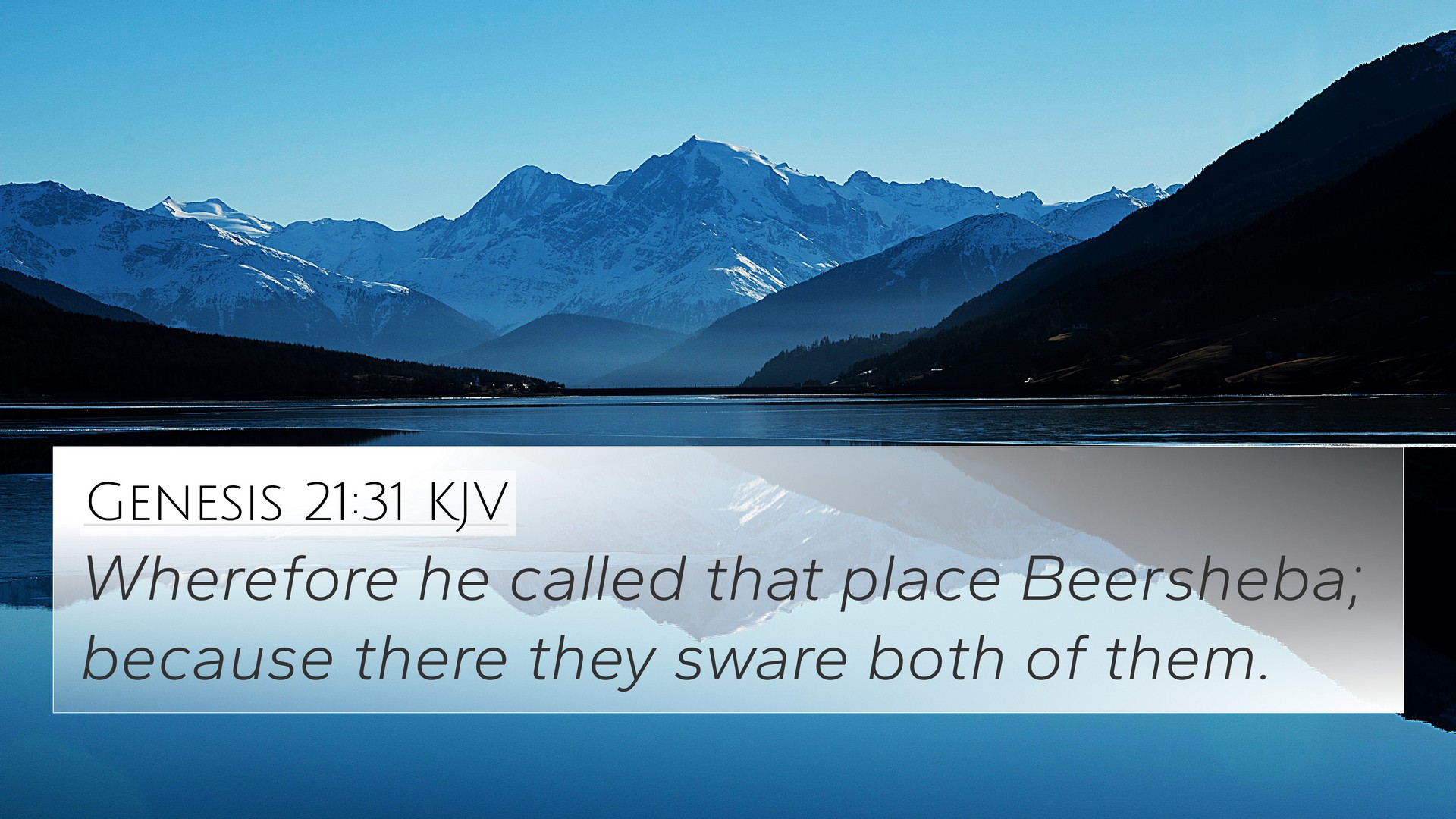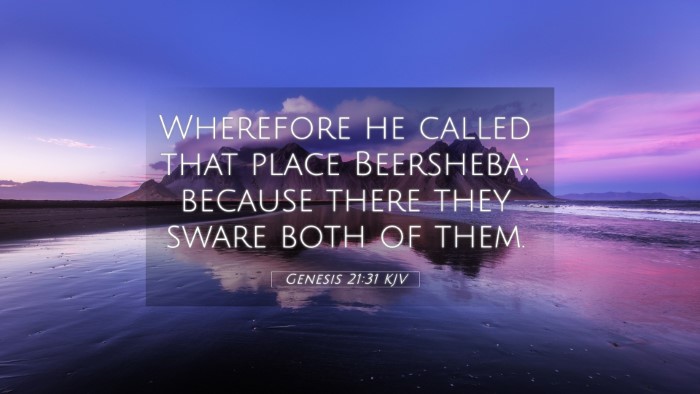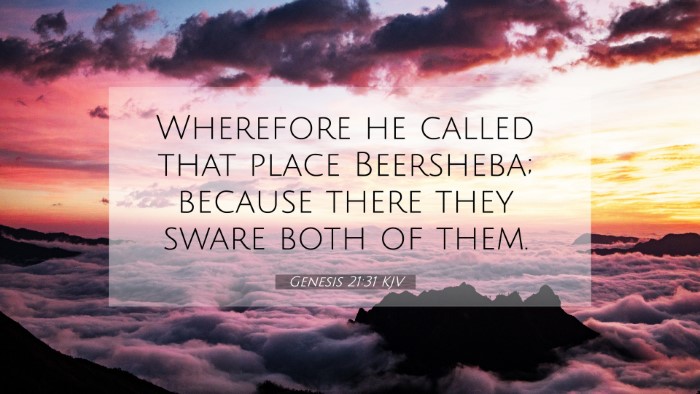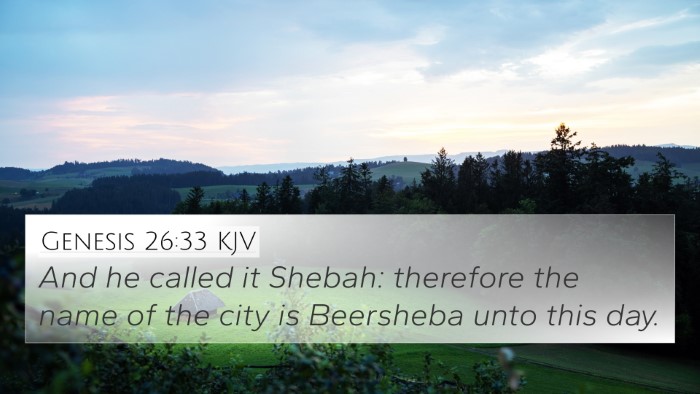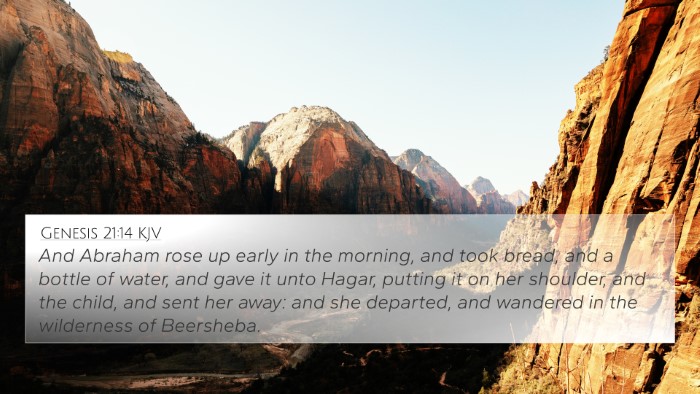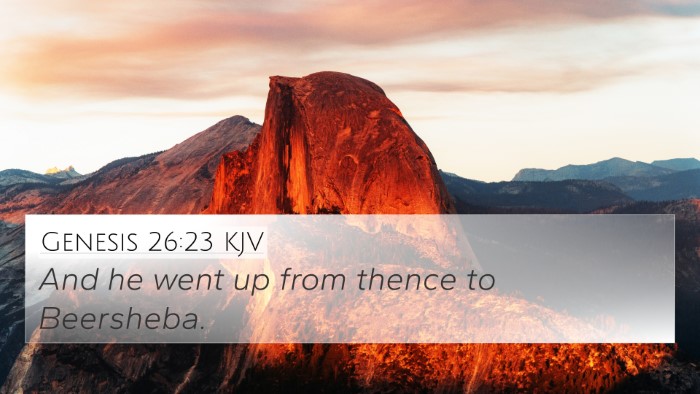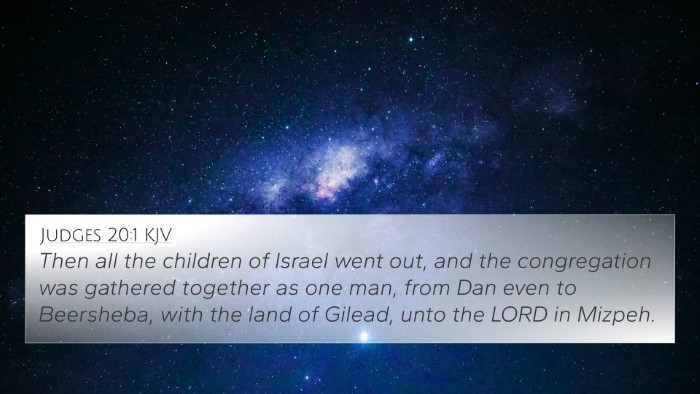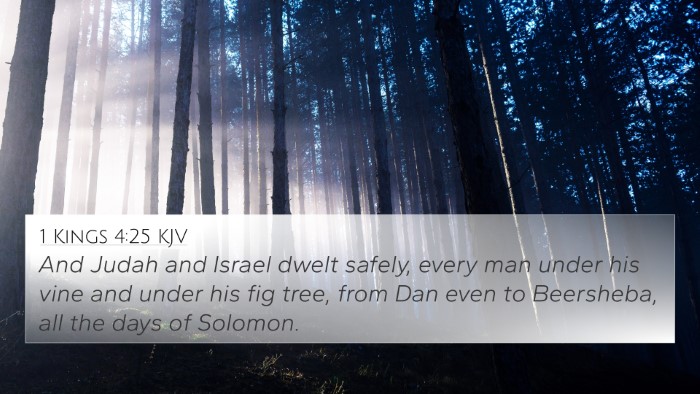Understanding Genesis 21:31
Verse Reference: Genesis 21:31 - "Wherefore he called that place Beersheba; because there they sware both of them."
This verse is pivotal in understanding the significance of covenants and agreements in the biblical context. More specifically, it reflects an important moment between Abraham and Abimelech, representing a formal alliance marked by mutual oaths.
Verse Meaning and Interpretation
This scripture presents a rich thematic exploration of the themes of trust, peace, and divine favor. The significance of the names and places often holds deeper meanings and prophetic undertones in the biblical narrative.
Key Insights from Commentaries
-
Matthew Henry:
Henry emphasizes the importance of oaths in forming treaties. The place was named Beersheba, which means "well of the oath," to commemorate the serious promises made between the two parties. This act symbolizes the societal aspect of faithfulness and the expectation of integrity in human relations.
-
Albert Barnes:
Barnes highlights the importance of naming places in the biblical tradition as reflective of key events. The oath signifies a solemn commitment, and the well represents the provision of God, ensuring that Abraham and Abimelech could coexist peacefully in the region.
-
Adam Clarke:
Clarke provides insight into the geographical implications of Beersheba as a significant landmark. The occurrence of the oath and well together indicates the establishment of both physical and relational peace, critical for the future of Abraham’s lineage.
Thematic Connections
The themes expressed in Genesis 21:31 resonate throughout the Bible, reflecting on oaths, wells, and covenants:
- The significance of oaths in the ancient Near Eastern culture is underscored throughout Scripture.
- The concept of names reflecting deeds and divine intervention can be further explored in texts like Genesis 28:19.
- Genesis 26:33 discusses the reaffirmation of Abraham's legacy and the continued divine favor upon his descendants.
Bible Verse Cross-References
Understanding Genesis 21:31 can be deepened by examining related scriptures:
- Genesis 12:1-3 - God's promise to Abraham as a foundation for his future.
- Genesis 26:28-29 - The renewal of a covenant by Isaac, Abraham's son.
- Exodus 18:21 - The establishment of trustworthy leaders, reflecting the themes of accountability.
- Numbers 30:2 - The seriousness of making vows before God.
- 1 Samuel 24:22 - David's oath of peace, paralleling Abraham's commitments.
- Proverbs 18:21 - The power of words and promises, reflecting the serious nature of oaths.
- Ephesians 4:15 - Speaking the truth in love, significant for healthy relationships and treaties.
Conclusion
Genesis 21:31 serves as a reminder of the importance of faithfulness in relationships and the spiritual significance of our commitments. The act of naming places symbolizes the legacy of divine promises fulfilled and the continuity of God's faithfulness. Through careful study of interconnected verses, readers can acquire a richer understanding of biblical themes of covenant and peace.
Tools for Further Study
For anyone looking to engage in a deeper exploration:
- Utilize a Bible concordance for finding word relationships.
- Refer to a Bible cross-reference guide for a structured approach to connecting related verses.
- Consider engaging in cross-reference Bible study methods to foster open dialogue with the Scripture.
How to Use Bible Cross-References Effectively
Understanding and identifying connections between Bible verses enhances comprehension:
- Start with familiar passages to build an understanding of related themes.
- Explore both Old and New Testament connections to gain insights into how the narrative unfolds across Scripture.
- Apply themes from cross-references in sermons or studies to draw practical applications for everyday life.
Inter-Biblical Dialogue
Encouraging a conversation between texts, Genesis 21:31 invites readers to engage in a broader dialogue that explores:
- The link between patriarchal stories and the establishment of future nations.
- The interplay between God's promises and human actions as seen throughout Israel's history.
- How these oaths shape the understanding of faithfulness in the context of the New Testament.
